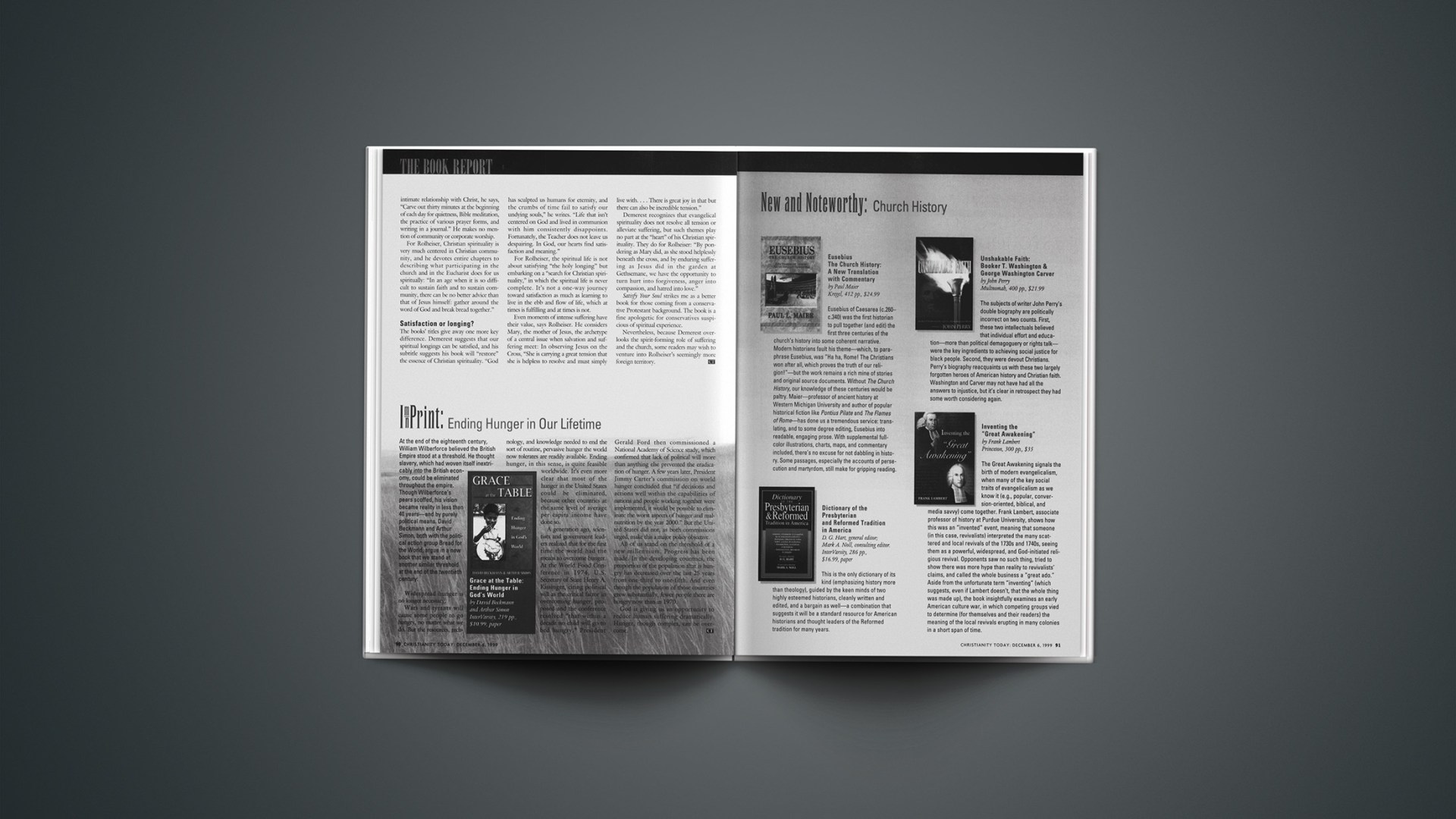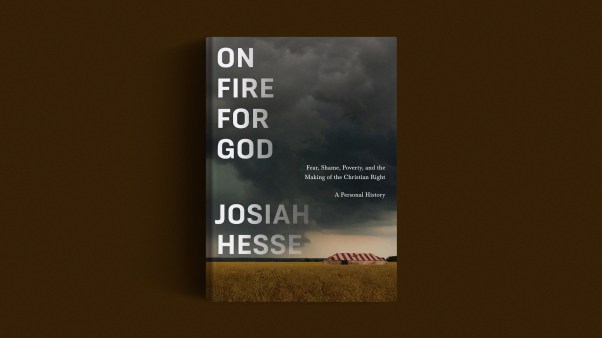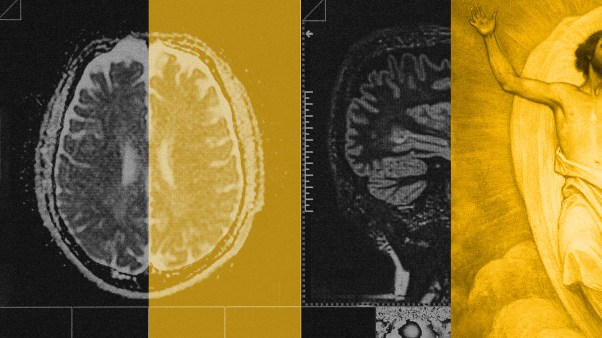Eusebius The Church History: A New Translation with Commentaryby Paul MaierKregel, 412 pp., $24.99
Eusebius of Caesarea (c.260- c.340) was the first historian to pull together (and edit) the first three centuries of the church’s history into some coherent narrative. Modern historians fault his theme—which, to paraphrase Eusebius, was “Ha ha, Rome! The Christians won after all, which proves the truth of our religion!”—but the work remains a rich mine of stories and original source documents. Without The Church History, our knowledge of these centuries would be paltry. Maier—professor of ancient history at Western Michigan University and author of popular historical fiction like Pontius Pilateand The Flames of Rome—has done us a tremendous service: translating, and to some degree editing, Eusebius into readable, engaging prose. With supplemental full-color illustrations, charts, maps, and commentary included, there’s no excuse for not dabbling in history. Some passages, especially the accounts of persecution and martyrdom, still make for gripping reading.
Dictionary of the Presbyterian and Reformed Tradition in America
D. G. Hart, general editor; Mark A. Noll, consulting editor.
InterVarsity, 286 pp., $16.99, paper
This is the only dictionary of its kind (emphasizing history more than theology), guided by the keen minds of two highly esteemed historians, cleanly written and edited, and a bargain as well—a combination that suggests it will be a standard resource for American historians and thought leaders of the Reformed tradition for many years.
Unshakable Faith: Booker T. Washington & George Washington Carver
by John Perry
Multnomah, 400 pp., $21.99
The subjects of writer John Perry’s double biography are politically incorrect on two counts. First, these two intellectuals believed that individual effort and education—more than political demagoguery or rights talk—were the key ingredients to achieving social justice for black people. Second, they were devout Christians. Perry’s biography reacquaints us with these two largely forgotten heroes of American history and Christian faith. Washington and Carver may not have had all the answers to injustice, but it’s clear in retrospect they had some worth considering again.
Inventing the “Great Awakening”
by Frank Lambert
Princeton, 300 pp., $35
The Great Awakening signals the birth of modern evangelicalism, when many of the key social traits of evangelicalism as we know it (e.g., popular, conversion-oriented, biblical, and media savvy) come together. Frank Lambert, associate professor of history at Purdue University, shows how this was an “invented” event, meaning that someone (in this case, revivalists) interpreted the many scattered and local revivals of the 1730s and 1740s, seeing them as a powerful, widespread, and God-initiated religious revival. Opponents saw no such thing, tried to show there was more hype than reality to revivalists’ claims, and called the whole business a “great ado.” Aside from the unfortunate term “inventing” (which suggests, even if Lambert doesn’t, that the whole thing was made up), the book insightfully examines an early American culture war, in which competing groups vied to determine (for themselves and their readers) the meaning of the local revivals erupting in many colonies in a short span of time.
Mark Galli is Book Review Editor for Christianity Today and Editor of Christian History magazine.
Copyright © 1999 Christianity Today. Click for reprint information.









